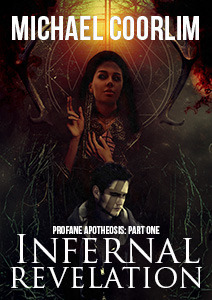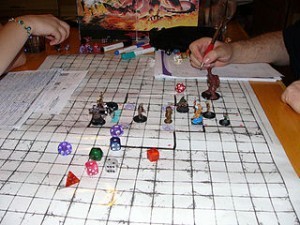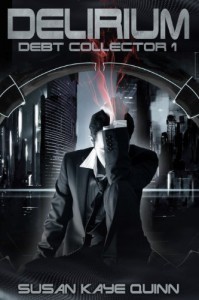Michael Coorlim's Blog, page 49
April 24, 2014
Infernal Revelations Chapter 1 Preview
 High School track star Lily Baker’s life was knocked out of its track when a terrible accident put her into a coma and killed her best friend. When she comes out of it a week later, she can’t help but notice the stares and hear the whispers from her peers and classmates. The changes that she can see are nothing compared to the darkness that has awakened within, both for her and the other adopted outsiders living in her small West Texas town.
High School track star Lily Baker’s life was knocked out of its track when a terrible accident put her into a coma and killed her best friend. When she comes out of it a week later, she can’t help but notice the stares and hear the whispers from her peers and classmates. The changes that she can see are nothing compared to the darkness that has awakened within, both for her and the other adopted outsiders living in her small West Texas town.
Infernal Revelations is a young adult suspense horror serial due out in early May. It blends Goetic and Enochian themes to tell a story of loss and belonging in small-town America. Presented below is the first chapter from the first episode.
Lily woke from an apprehensive nightmare, gradually coming to the realization that this wasn’t her bed, that she wasn’t in her pajamas, that something was very wrong. Her eyelids felt heavy, like they’d been glued shut, but she was comfortable, so she was content to lie in a half-sleep twilight and just listen until she could get her bearings.
Voices murmuring. Quiet conversation, close by, though she was too disoriented to pick out any meaning. A steady noise, an electronic chirp. Other sounds from further off, machine sounds, industrial sounds. Where was she?
The linens were crisper and slightly rougher than her own bedding. The air had a faint antiseptic tinge to it.
Someone moved alongside her bed. Lily managed to open her eyes, letting in far too much light. Everything was blurry, but she managed to make out a woman in white.
“Mom?” she tried to say, producing little more than a croaking groan.
There was a flurry of activity and someone was leaning over her, not the woman in white, a familiar scent, that of Mother, half-weeping, half-talking. She couldn’t understand a word.
Father’s bass rumbled over Mother’s fear, soothing, and drawing her away, leaving behind hot tears on her shoulders.
Mother was crying.
Mother never cried.
A note of worry crept into Lily’s confused stupor, and she tried to focus, tried to draw the world into cohesion.
The woman in white displaced her mother, gloved fingers prying open Lily’s eyelids, and she was unable to look away from the bright light shining into each of her eyes.
“Lily?” the woman said. “Can you hear me? Do you know where you are?”
“Nneh,” Lily managed, turning away from the brightness.
As her vision adjusted she could see more of her surroundings. An unknown room, sparse and white-walled, in a tall metal-framed bed. The woman in white had moved to the foot of her bed, slipping a thin silver flashlight into her breast pocket.
A doctor. Doctor Janssen. Not her doctor, not the one Lily had been seeing since she was a girl, but Laton General wasn’t as big as the medical center in Odessa, and she did, dimly, know the woman’s name.
“Hospital?” she said, though some of the vowels got lost along the way.
“That’s right honey.” Her mother was still there, gripping the side of the bed. ”You were in an accident.”
The turquoise of her mother’s shirt had a surreal clarity to it, popping out from the almost monochromatic blur of her vision.
“Give her space, Lisa.” Daddy.
Lily hadn’t noticed her father. He was dressed in his church clothes, a black jacket with a crisp white dress shirt and tie that befitted a deacon.
Was it Sunday? Was yesterday Saturday? What was she doing last night?
“Accident?” Lily asked, more clearly.
“Disorientation is normal,” Doctor Janssen was telling her parents. “A severe concussion sometimes includes a period of amnesia, but her memory may return within the next twenty-four hours.”
Her parents were paying rapt attention to the woman, but to Lily it all seemed distant. Something she was watching, rather than something that was happening to her.
“But other than that, she’s fine?” Unlike her father, her mother was dressed more casually. Well. Casual for her mother.
“She’s very lucky.”
Lily spoke up. “What happened?”
To her frustration, Doctor Janssen continued to address her parents, not even glancing in her direction. “We’d like to keep her here for observation for another few hours. Just to make sure she’s recovering.”
“Whatever you think is best,” her father said. “We’ll wait here with her.”
“Of course,” Doctor Janssen said. “I’ll send a nurse along to run some tests. Try to keep her awake.”
“What happened?” Lily repeated, apprehension growing.
The doctor patted her leg and offered a sympathetic smile. “You just focus on feeling better. You can worry about the rest later.”
Lily looked from the doctor’s smiling face to her parents’. If this fog in her head would just lift, if she could just concentrate and remember what had happened, how she’d gotten here, everything would make sense.
“What accident?” she asked, hands curling into the hospital bedding. “Mom? Dad?”
The doctor hesitated, looking to her father.
He sighed and sat down in the chair alongside her bed. Her mother moved to stand beside him, worry crossing her face. They didn’t look much like Lily, her foster parents, even if you discounted the contrast between their tan northern European features with their adopted daughter’s own African heritage. Where Lily’s build was slender and athletic, Tom and Lisa Baker were broadly built, stout folk from a stout people, strong but soft from good living. Despite these dissimilarities, there was little doubt in the minds of those who saw them together that they were a loving family.
Her father opened his mouth and stalled. His wife put a hand on his.
“You were in a car accident, dear,” Lily’s mother said, patting her father’s hand. “Along with Ashley and Lauren.”
“Oh my Lord,” Lily said, fingertips flying to her lips, her stomach taking a sudden twist. “Are they alright?”
“You’re fine,” her father said. “You took a bump on the head, but the doctors say that it isn’t anything serious.”
“No, Ashley and Lauren,” she said, her gaze darting from her father’s face to her mother’s. “Are they okay?”
“You need to try and relax, Lily.” Doctor Janssen whetted her pale lips and picked up the chart at the end of the bed. “You’ve been through a traumatic experience.”
Lily locked eyes with her father. “Are Ashley and Lauren okay?”
Her father looked away, and that churning in Lily’s stomach turned into a gnawing dread.
“Sweetheart.” Her mother leaned forward, a hand on her arm. “Ashley was hurt badly. She’s in intensive care. And Lauren…”
“Miss Clark was killed on impact,” Doctor Janssen said.
Lily’s father was saying something, but words had lost their meaning. The girl let out a choked moaning sob and curled up, her shoulders hunching forward, drawing her knees up to her chest. She cried for her friends, crying to God, to Jesus, to anyone that would listen, barely acknowledging the soothing voices and soft hands trying to comfort her. Compared to the icy blackness welling up from the pit of her chest, they just weren’t enough.
Lauren dead. Ashley injured.
And she was okay. Unhurt. Unharmed. Was that God’s justice? Was that His will?
She had faith. No matter what happened to her — to her — she could maintain her composure with an iron faith in God’s plan. She could endure. He had given her a beautiful life with a foster family who loved and cared for her as if she were their own, and for that she would be ever grateful to Him.
But this? To spare her when her best friends in the world were taken, were hurt, to leave her untouched… it was a miracle.
That’s what her father was calling it. A miracle.
And he was right. But did she deserve it? She was no more righteous than her peers. She had her sinful thoughts. Why would God punish them, take Lauren, and leave her unharmed?
Was it a test?
It had to be a test.
All her life, her father, a deacon in the International Church of Christ Everlasting, had told her stories about God and his tests. Tests of virtue, of faith, of compassion. It was only through tests and temptations, her father said, that we could be sure of cleaving to the Christian values of compassion and tolerance. It was easy, her church taught, to rely on weaknesses like hate and fear to unite a community, but these were not the ways that Jesus taught.
As she lay there, in the hospital bed, eyes focused past her anxious parents towards the small shelf holding cards and flowers — lavender, her favorite — from well-wishers, Lily realized that she’d never really been tested. She was lucky. Very lucky. Her family was close and well placed within the community, she was athletic, pretty (so they said), and popular at school. She had been given so many blessings, and now this miraculous survival?
Did she deserve it?
She didn’t know.
She couldn’t remember what had happened.
***
After Lily had stopped weeping, a nurse with her hair in a bun came by with the release forms and a wheelchair. Her father signed the papers, and the nurse started to help her into the chair.
“I think I can stand,” Lily said in a small voice, sliding with stiff limbs to the side of the bed.
“It’s for insurance reasons,” the nurse said.
Lily nodded and allowed the nurse and her father to help her into the chair, falling silent, her thoughts drifting as they wheeled her through the hospital’s corridors. She wanted, desperately, to ask her parents about the accident, but her earlier attempts had been rebuffed. They wanted her to rest. How could she rest with that question hanging overhead?
As bright as the hospital’s fluorescent lights had been, the Texas sun burned all the more furiously overhead. The heat of the late morning blasted Lily’s skin as her family left the cool hospital to where the family minivan was parked near the entrance. Her mother gazed off towards the horizon as her father crossed around to the driver’s seat.
Lily barely noticed the heat, lost in thought as she was. “It’s Sunday?”
Her father glanced back over his shoulder. “Deacon Ross took over for me today. It’s more important that I be with my family.”
“When did I…”
“You’ve been in the hospital since late last Saturday,” her mother said.
A week? She’d been unconscious for a week? Sudden fears of brain damage filled Lily’s thoughts, and she panicked when she realized she couldn’t remember what she’d been doing last Saturday night. Where had she have been going? What had she been up to?
A sudden spark of fear bloomed in her chest. “Was Derek hurt?”
Her mother climbed into the passenger’s seat, a wan smile on her face. “No, dear, Derek was in Boston, remember?”
Boston. Right.That whole big thing.
“He’s been here every day, sweetie,” her mother said, “waiting by your side.”
“He’ll be sorry he missed your awakening.” Her father started the car and checked his mirrors again. “You can call him when you get home, but I want you to rest, sweetheart.”
“Yeah,” Lily said, laying her forehead against the heat of the window. “Sure.”
Infernal Revelation’s first episode is due out in under two weeks. You can join the Mailing List for a notification when it is available.
Sign up for Michael Coorlim's mailing list for advanced notification of new releases, or go check out some of his free fiction while it's there for the taking.
The post Infernal Revelations Chapter 1 Preview appeared first on Michael Coorlim.
April 21, 2014
Good History Podcasts
 I’m a big ole nerd when it comes to history. It was always one of my favorite subjects in school, and I love doing the research for the historical fiction that I write.
I’m a big ole nerd when it comes to history. It was always one of my favorite subjects in school, and I love doing the research for the historical fiction that I write.
I’m currently doing research for an alternate history web serial I’m planning on unveiling next month. In addition to various historical texts, I’ve found a couple podcasts that do an excellent job of covering different eras and topics.
The Podcast of History of World, currently 43 episodes long, has been following the course of history from its dawn, presented in an entertaining manner by a teacher.
Hardcore History is an alternative take on various conventions that might not be to everyone’s taste.
Sign up for Michael Coorlim's mailing list for advanced notification of new releases, or go check out some of his free fiction while it's there for the taking.
The post Good History Podcasts appeared first on Michael Coorlim.
April 11, 2014
Remember when everyone thought Dungeons and Dragons was real?
 When I first got into Dungeons and Dragons in 1989, it was more than a form of escapism. The game had managed to pick up more than its fair share of baggage since its 1970s introduction.
When I first got into Dungeons and Dragons in 1989, it was more than a form of escapism. The game had managed to pick up more than its fair share of baggage since its 1970s introduction.
When someone hurts or kills themselves in a senseless way, the loved ones left behind will cling to anything that promises to offer an answer. When a few kids who had done so had been players of the game, it was latched on to as a primary factor.
The meme that Dungeons and Dragons involved ritual sacrifice, demon worship, and real magic spread as a result of BADD’s media campaign against the game. People who absorbed the propaganda believed that it was dangerous, without necessarily knowing why or being able to name any specific instances.
I was fascinated by the game. Not because of the demon worship rumors — even at eleven I knew that that was a ridiculous idea — but because of the idea of the stories you could tell with it. I’d played a few sessions with some older kids and enjoyed it, but my early exploration with the game was through borrowed library books.
Books that I had to hide from my mom, like they were something dirty, something forbidden.
Eventually when I was 13 or 14 I sat my mom down and had a talk with her about it, how ridiculous it was. I showed her one of the books, flipped through it with her, and forced her to confront and justify the vague idea she’d had that Dungeons and Dragons was satanic.
For once, confronting unsubstantiated faith with reasoned logic actually worked. Probably because my mom was only objecting because she thought that was what was expected of her to be a good parent. She’s a smart woman, and the whole idea was a ridiculous one.
Sign up for Michael Coorlim's mailing list for advanced notification of new releases, or go check out some of his free fiction while it's there for the taking.
The post Remember when everyone thought Dungeons and Dragons was real? appeared first on Michael Coorlim.
April 7, 2014
Wordcount Agonist
I’ve got a few Tumblrs. I started my first, Black Book Racking, in April of 2011 to curate pictures of street art and tattoos. I created another as an author site in late 2012, before starting mcoorlim.com, and I use it mostly to share tumblr content related to the themes presented in my writing.
I don’t update it very often.
A few days ago I started Wordcount Agonist, a third tumblr to track my wordcount and productivity. You’re free to follow it if you’re so inclined, and want an insight into my process.
Sign up for Michael Coorlim's mailing list for advanced notification of new releases, or go check out some of his free fiction while it's there for the taking.
The post Wordcount Agonist appeared first on Michael Coorlim.
March 26, 2014
Profane Apotheosis Pinboard
 Good news, everybody! I have finally found a use for Pinterest.
Good news, everybody! I have finally found a use for Pinterest.
That’s unfair, I admit it. Pinterest is a widely popular social media outlet, and I’ve had a number of pinboards reflecting my various interests. What I hadn’t figured out, though, was a way to incorporate it into my sphere as an author.
Visual Inspirations
Part of my brainstorming and development process when I’m developing an idea into a book is collecting a small library of images related to the project. I don’t really go out of my way to find references, but when I come across something that strikes me just right, I’ll save it in the project folder. It helps establish tone, more than anything else.
Project Pinboard
I’d been doing something somewhat related with Pinterest previously, pinning anything cool or interesting that I came across, but without any real focus. It occurred to me not too long ago that I could use the service to organize my inspirations by project, and I set up one for my upcoming supernatural thriller serial Profane Apotheosis.
I’d collected Goetic imagery and sigils, desolate Texan landscapes, and images of people who incorporated aspects of the primary characters involved. You can see what I’ve got in the Profane Apotheosis pinboard. There aren’t any real spoilers, but you can get an idea of the tone and themes you can expect when the serial is released in April 2014.
Sign up for Michael Coorlim's mailing list for advanced notification of new releases, or go check out some of his free fiction while it's there for the taking.
The post Profane Apotheosis Pinboard appeared first on Michael Coorlim.
March 24, 2014
Review of Delirium: Episode 1 of the Debt Collector Serial by Susan Kaye Quinn
 Delirium is the first episode in the 9-part first season of Susan Kaye Quinn‘s Debt-Collector serial. This dark future-noir story chronicles the journey of Lirium, a collector of life energy with a ruthlessly mercenary mindset.
Delirium is the first episode in the 9-part first season of Susan Kaye Quinn‘s Debt-Collector serial. This dark future-noir story chronicles the journey of Lirium, a collector of life energy with a ruthlessly mercenary mindset.
You can read the entire review over at Book Nouveau.
Sign up for Michael Coorlim's mailing list for advanced notification of new releases, or go check out some of his free fiction while it's there for the taking.
The post Review of Delirium: Episode 1 of the Debt Collector Serial by Susan Kaye Quinn appeared first on Michael Coorlim.
March 21, 2014
Growing up cybernetic: So many computers
I have a smart phone, an android G-something that I got last year after losing my previous cheap pay-as-you-go Nokia whatever it was. This thing is pretty cool. I don’t use it as a phone more than once every few days, but I use it as a camera and computer almost constantly. They’re ubiquitos, these things, and the current generation of kids is growing up in a world where everyone above a certain income level is hand-in-pocket away from instant connection with the rest of the world.
It was different for me, growing up. My generation was the first for whom owning a desktop computer wasn’t a big deal.
I speak here from a position of first-world privilege, of course, even though we were poor. We got our first “real” computer, the family computer, in the early 90s. I think it was a 386 PC with a whopping 4 meg hard-drive. My mother kept it in her room, and we were not to touch it unsupervised, lest we “screw it up.”
Cyberdecks they ain’t
 But before that, well before that, I owned a host of microcomputers. Technology had always fascinated me, particularly computers. Microcomputers were little more than a keyboard that hooked up to your television. As a pre-teen I would hit garage sales looking for them, buying them when they were cheap enough, and they often were. I think my first was a TSR-80, though I also remember having an Atari 800 and something called a Timex-Sinclair 5000.
But before that, well before that, I owned a host of microcomputers. Technology had always fascinated me, particularly computers. Microcomputers were little more than a keyboard that hooked up to your television. As a pre-teen I would hit garage sales looking for them, buying them when they were cheap enough, and they often were. I think my first was a TSR-80, though I also remember having an Atari 800 and something called a Timex-Sinclair 5000.
None of them had hard-drives. Some of them had floppy disc drives built in, but these scavenged and salvaged machines seldom had much in the way of peripherals. For the most part I would program on them in BASIC, both little games of my own creation and long listed programs from library books and the box of computer magazines I had acquired somewhere. I’d make quick little arcade games and longer convoluted text adventures. It was fun, and if I had a floppy disc I might even save it.
 The computer I remember the best was the Commodore 128. That’s 128. Twice as good as the 64, right? It, like the others I had, was a keyboard that plugged into the television. This one also had a tape drive, though. The tape drive looked just like a cassette tape player, and it would take five to thirty minutes to read the data back into the computer. I have vague memories of buying blank tapes to record my BASIC programs onto, and being thrilled when playing them back worked.
The computer I remember the best was the Commodore 128. That’s 128. Twice as good as the 64, right? It, like the others I had, was a keyboard that plugged into the television. This one also had a tape drive, though. The tape drive looked just like a cassette tape player, and it would take five to thirty minutes to read the data back into the computer. I have vague memories of buying blank tapes to record my BASIC programs onto, and being thrilled when playing them back worked.
Eventually I found a disc drive for it, which opened up new avenues for me. I could buy commercial software products, the kind still sold in stores. Only two games stick out for me, The Legend of Blacksilver and Wasteland.
I cheated at Wasteland
 I spent a lot of time playing Wasteland. It was a fun game. The C64 lacked a hard drive, so to play you’d need to save your progress on a set of floppies. Each floppy disk saved a different part of the game. The first floppy saved your guys’ stats, but the other four saved different parts of the game world.
I spent a lot of time playing Wasteland. It was a fun game. The C64 lacked a hard drive, so to play you’d need to save your progress on a set of floppies. Each floppy disk saved a different part of the game. The first floppy saved your guys’ stats, but the other four saved different parts of the game world.
I figured out a process by which I could “reset” the game-world-save floppies without resetting the “character stats” floppy, and thus replay parts of the game over and over with continually improving characters. The game was fun, but I think I got an even bigger thrill from this hack, from the feeling of having outsmarted the game’s designers.
I wasn’t a total nerd
If it sounds like I was just this huge computer nerd, yeah, I sort of was. But I did other things, too, kid stuff. I went out, I rode bikes, I went off into what passes for the “woods” in the suburbs and down to the lake. In the summer I stayed out until dark playing tag or whatever with the neighbor kids, and in the winter I’d slide around on the lake’s ice and build snow-forts.
But yeah, I was a pretty big nerd. It was easy to disconnect from the computers, though. I didn’t carry it around in my pocket. Even when we got the internet, it wasn’t something that was everywhere yet. It wasn’t part of everyday life, it was this weird “other” thing that we could play with.
For a few years, anyway.
Sign up for Michael Coorlim's mailing list for advanced notification of new releases, or go check out some of his free fiction while it's there for the taking.
The post Growing up cybernetic: So many computers appeared first on Michael Coorlim.
March 19, 2014
Reading fiction makes you better
Encoding information in a story framework makes it easier to digest and incorporate.
Sign up for Michael Coorlim's mailing list for advanced notification of new releases, or go check out some of his free fiction while it's there for the taking.
The post Reading fiction makes you better appeared first on Michael Coorlim.
March 17, 2014
Support me on Patreon
 I’ve set myself up an account over on Patreon. What is Patreon, you ask? Well, it’s an alternate way to support artists and creatives that you like. Every time I release a book, you automatically donate a fixed amount to me. At its basic this is simply a way to fund the creation of what you like. It’s encouragement.
I’ve set myself up an account over on Patreon. What is Patreon, you ask? Well, it’s an alternate way to support artists and creatives that you like. Every time I release a book, you automatically donate a fixed amount to me. At its basic this is simply a way to fund the creation of what you like. It’s encouragement.
But beyond that, there are reward tiers.
For $5 a book release, you’ll get an advance copy of the ebook.
For $20 a book, you’ll be sent a paperback version.
For $50 a book, you’ll be sent a signed paperback, and have your name appear in the acknowledgement section.
So, hey, if you’re not all about artistic patronage, you are more than welcome to use it as an automatic subscription service.
Other Projects
One of the weird quirks Patreon has is that it doesn’t let content creators offer patrons the choice of supporting different sorts of content. It’s an all or nothing sort of thing, which is fine in some cases, less fine in others. It also doesn’t directly allow for collaborative efforts unless you create a single account for both artists involved.
Kat O’Connor and I have a separate Patreon account for our Kali’s Tithe horror sci-fi web serial. So check that out if that’s your kind of thing. I may set up other accounts in the future for the Book Nouveau book blog or other projects I have.
Sign up for Michael Coorlim's mailing list for advanced notification of new releases, or go check out some of his free fiction while it's there for the taking.
The post Support me on Patreon appeared first on Michael Coorlim.
March 14, 2014
Change is Inevitable
Every story I’ve written can be boiled down to one essential plot. I write about bad things happening to people while they try and fail to avoid having to change and adapt. I think this sums up the “meaning of life” or the “human experience” or whatever you want to call it.
This “one plot” is the most blatantly presented in Grief, which is just literally people hiding behind their defense mechanisms until it becomes painfully obvious that they’re doing more harm than good. That’s the moment of heroics, for me, that choice to let your old self die, to let go of what you hold to be true about yourself, and become a new thing.
This personal apotheosis features heavily in my upcoming serial Infernal Revelation as well. Characters desperately clinging to selves that no longer serve them, out of a fear of the unknown, out of fear of change.
Sign up for Michael Coorlim's mailing list for advanced notification of new releases, or go check out some of his free fiction while it's there for the taking.
The post Change is Inevitable appeared first on Michael Coorlim.



